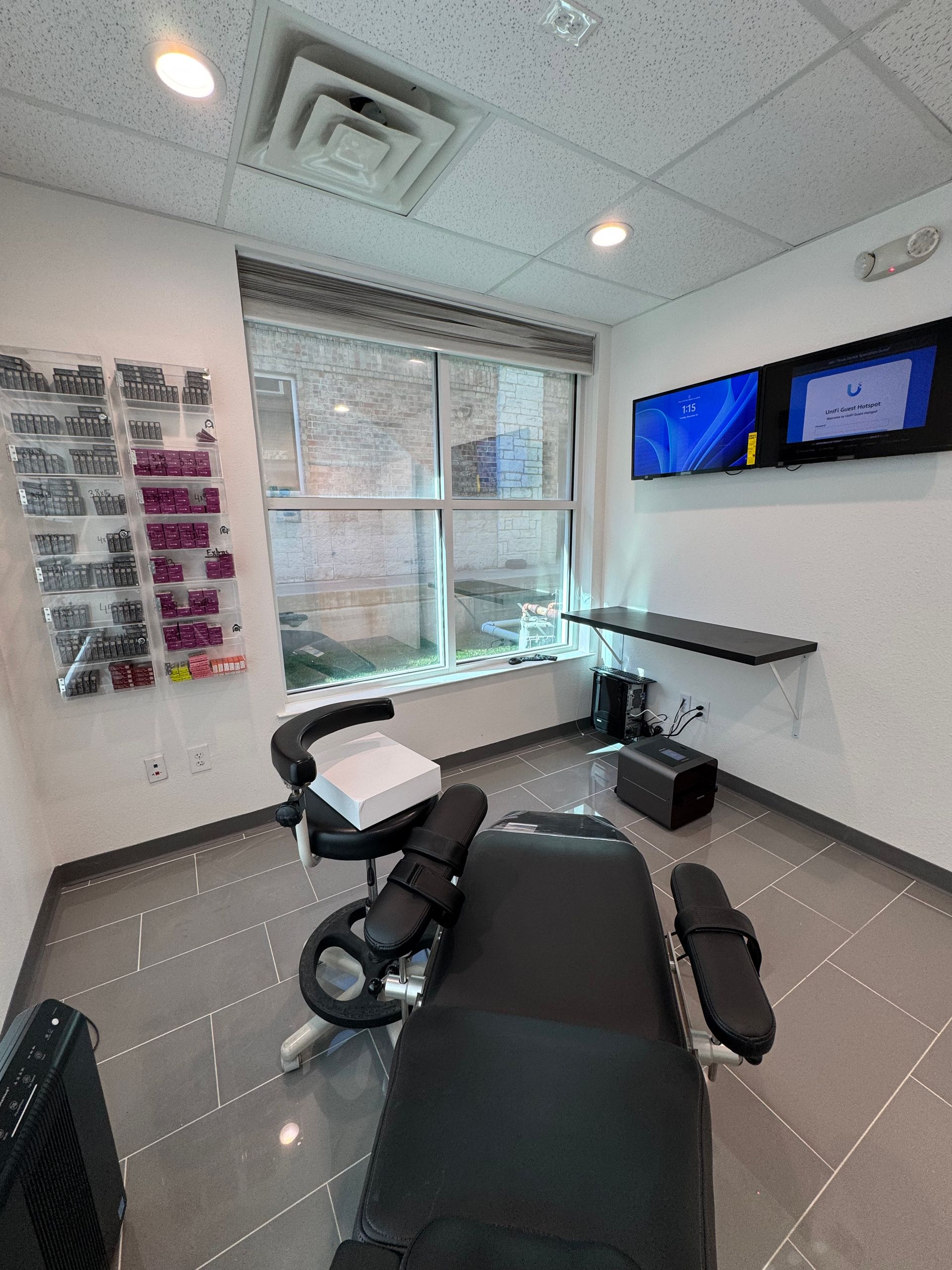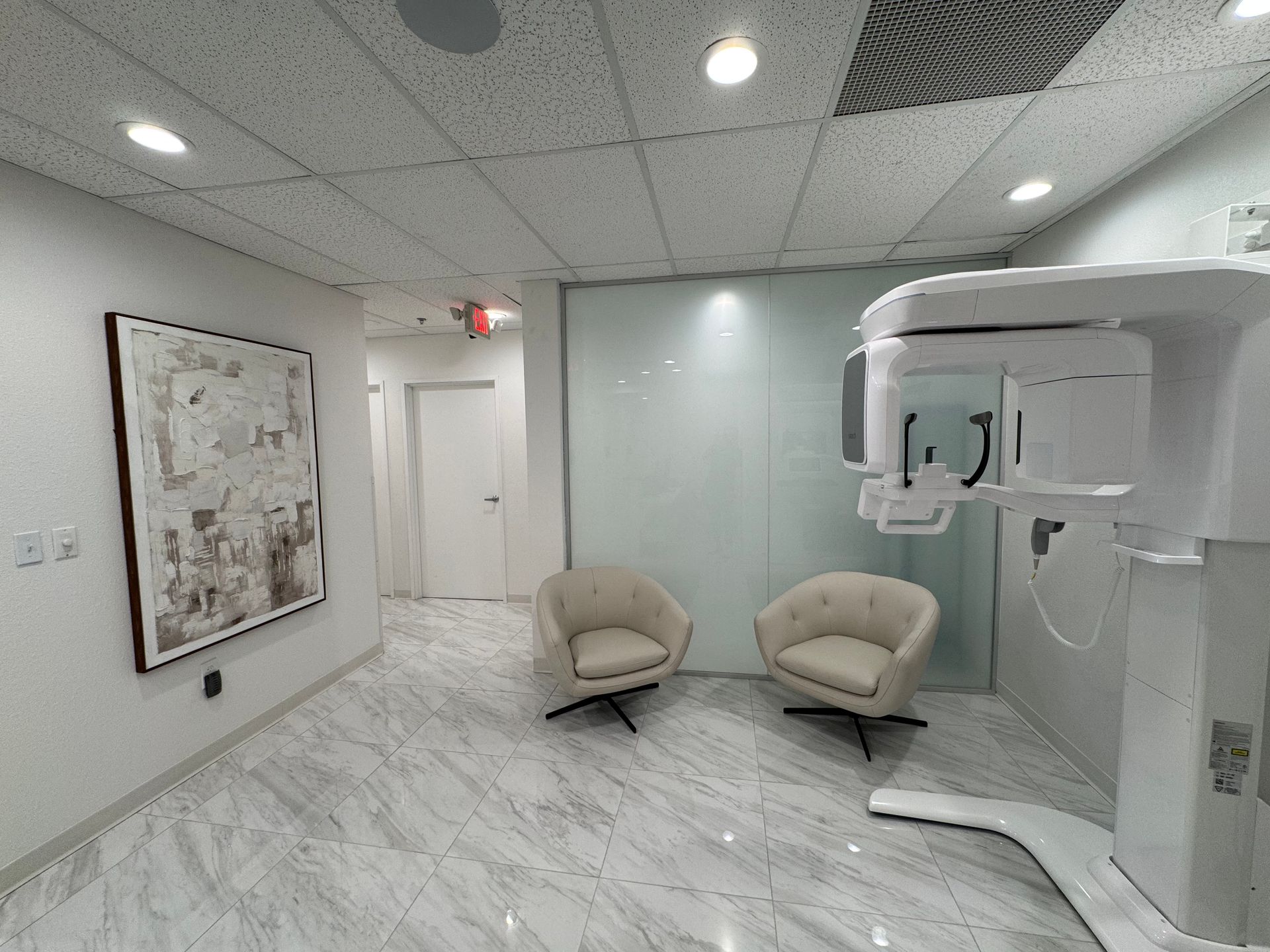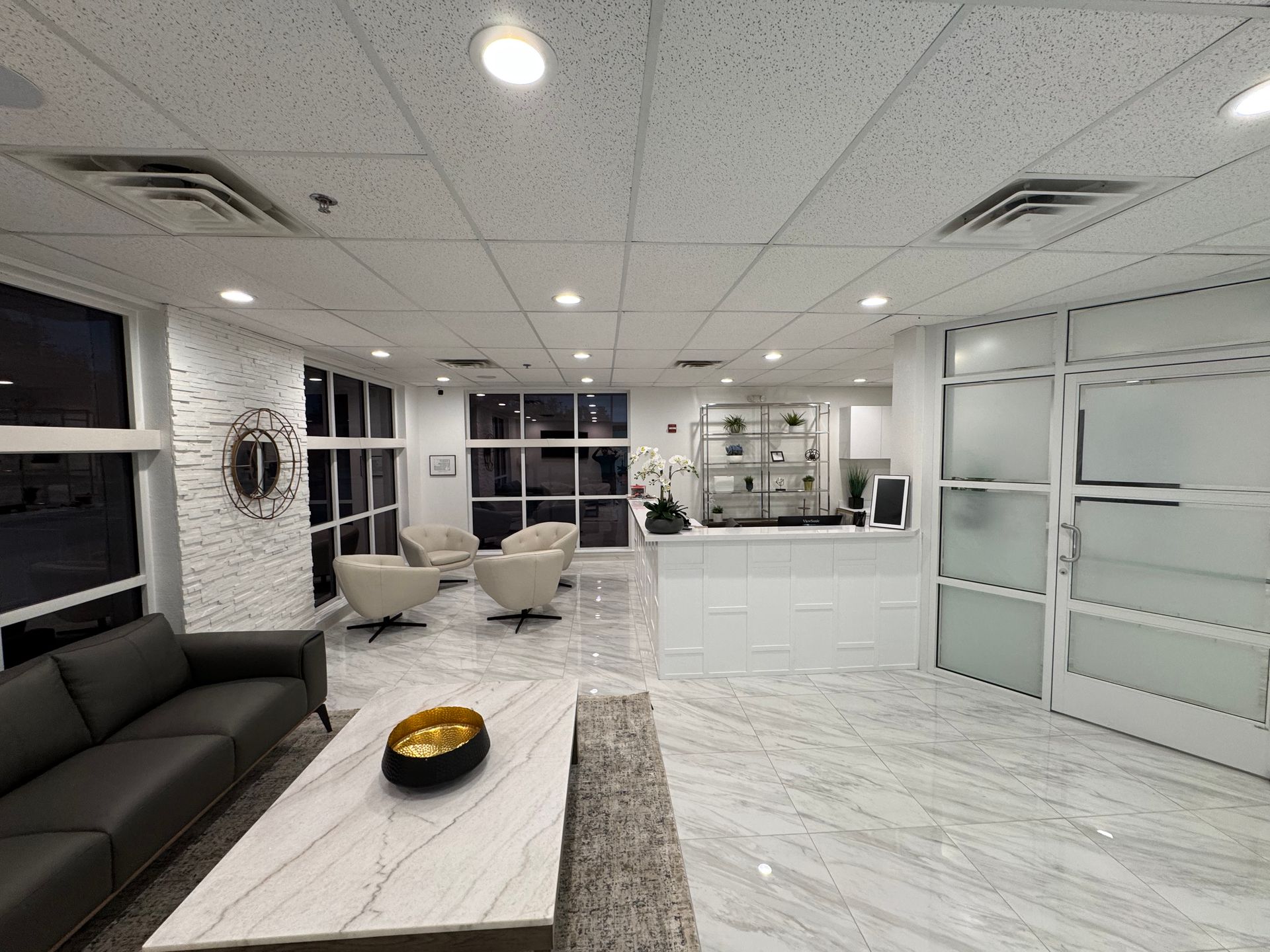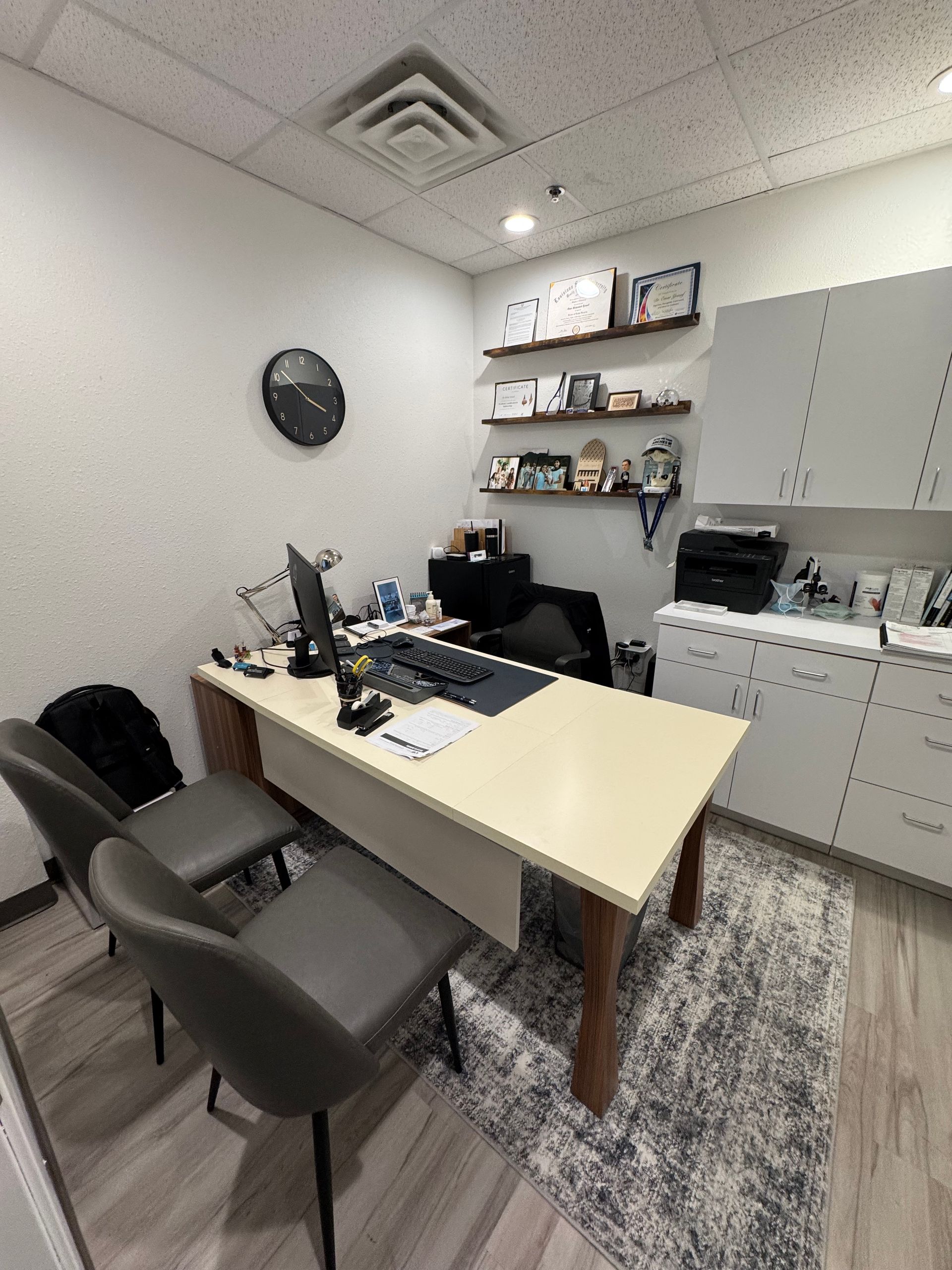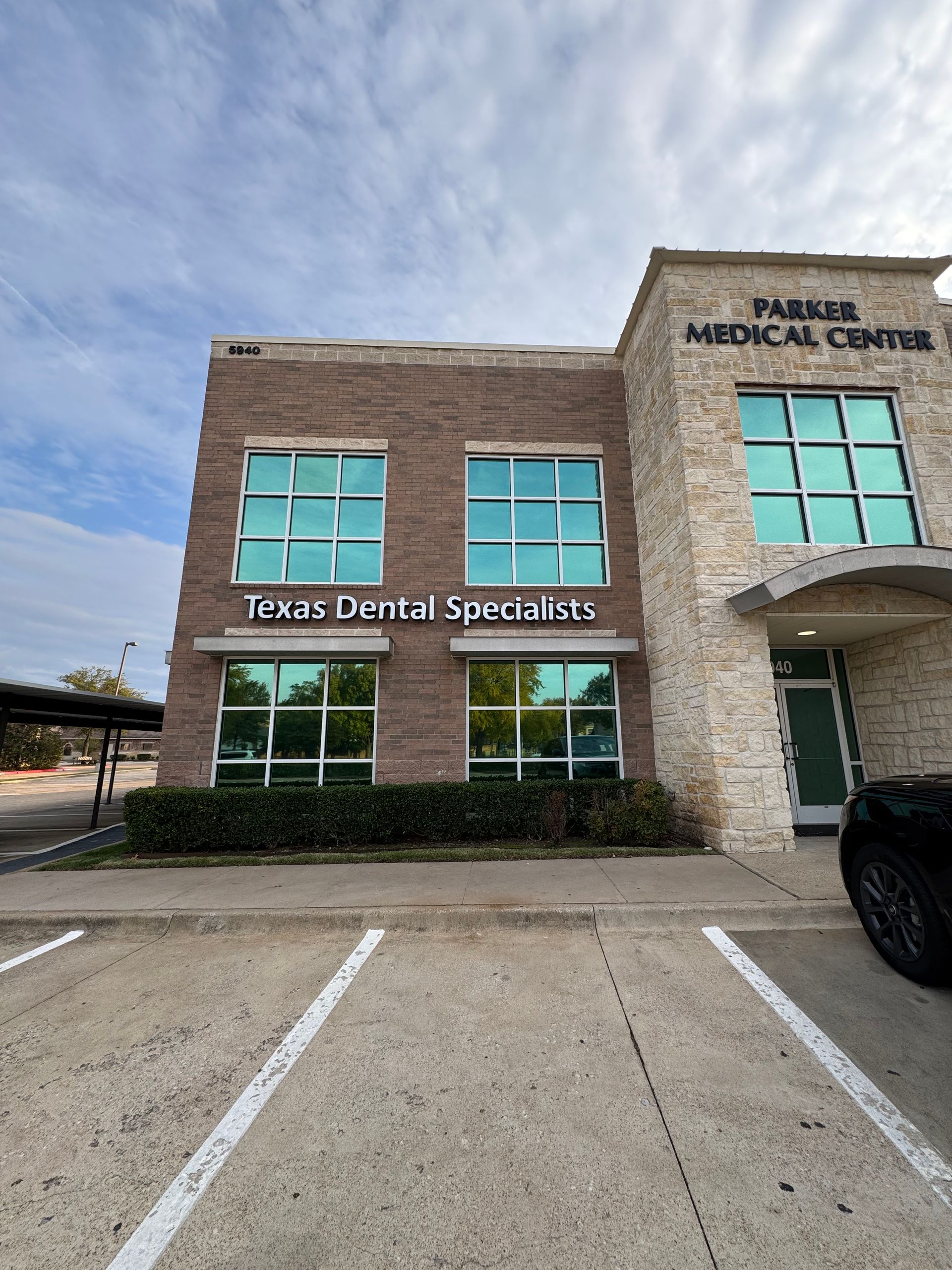Periodontal Diseases
Periodontal disease, also called gum disease, is a bacterial infection that can destroy the soft tissues and bone that support the teeth.
For more information about our services or to schedule an appointment, call us at (214) 619-6329 or complete the form below we’ll get back to you as soon as we can.
Signs and Symptoms of Periodontal Disease
Healthy gums have a pink and firm appearance, do not bleed easily and fit snugly around the root of your teeth. In mild cases, gum disease usually does not cause pain and is hence difficult to appreciate the disease. As the disease progresses, patients may develop signs and symptoms of gingivitis which may include:
- Swollen, tender and red gums
- Bleeding gums when brushing or flossing
If gingivitis develops into periodontitis (affects the tissues that support the teeth, resulting in loss of bone and teeth), you may also have the following symptoms:
- Receding gum line that may pull away from the teeth
- Bad breath
- Pus between your teeth and gums
- Change in bite pattern
- Loosening of the teeth
Causes of Periodontal Diseases
The most common causes of periodontal disease include:
Gingivitis (gum infection)
Gingivitis is the early stage of periodontal disease that affects only the gum tissue. Gingiva, commonly referred to as gums, is the soft pink tissue at the floor of the oral cavity (mouth), which covers the roots of the teeth. Gingivitis may result from plaque (a sticky substance made up of bacteria) buildup on teeth and may lead to red, swollen gums that are prone to bleeding while brushing and flossing. Injury or trauma to the gums, due to improper brushing techniques and certain medical conditions, may increase your risk of developing gingivitis. Gingivitis is reversible at this stage; however, if left untreated it may progress to a more severe form of gum disease called periodontitis.
Periodontitis
Periodontitis occurs from a progression of untreated gingivitis, affecting the tissues supporting the teeth, and resulting in the loss of bone and teeth. The periodontium refers to the tissue that surrounds and supports the root of the teeth. Periodontitis usually develops as a result of poor oral hygiene. Complications associated with periodontitis include the risk of heart attack or stroke, low birth weight babies, poorly controlled diabetes, and other serious health problems. Regular brushing, flossing and dental checkups can greatly reduce your chances of developing periodontitis.
When to See a Periodontist
A periodontist is a dentist who specializes in the diagnosis and management of gum diseases. A periodontist also performs dental implants and a wide range of cosmetic dental procedures.
The following are warning signs of periodontal disease:
- Swollen, tender and red gums
- Bleeding gums when brushing or flossing
- Receding gum line that may uncover from the base of the teeth
- Bad breath
- Pus between your teeth and gums
- Change in bite pattern
- Loosening of the teeth
Change in the fit of Partial Dentures
If you experience any of the warning signs, mentioned above, consult your dentist right away. Your dentist will perform a thorough dental examination to check for signs of periodontal disease. As periodontal disease is associated with other serious health conditions, evaluation by a trained specialist is necessary. Hence, if signs of periodontal disease are identified, your dentist may refer you to a periodontist for further evaluation and treatment. The periodontist will review your complete medical and dental history, and use a dental probe to check the health of your gums. Dental X-rays may also be used to evaluate the bone surrounding the roots of the teeth.
The earlier you seek dental treatment, the greater the possibility of reducing or preventing complications associated with gum disease.
Request an Appointment
For more information about our services or to schedule an appointment, call us at (214) 619-6329 or complete the form below we’ll get back to you as soon as we can.
For more information about our services, or schedule an appointment, give us a call or complete the form on our contact page.
Our reviews

